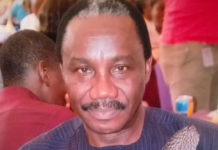This is a report of a survey conducted among lawyers on their assessment/evaluation of the Nigerian Bar Association’s performance on its constitutional objectives written in Section 3 of the Constitution.
The survey took place between the last quarter of 2017 and first quarter of 2018. Hard copies survey forms were distributed at meetings of lawyers and at few law firms. The locations for the survey were: Lagos, Zaria, Port Harcourt, Uyo, Yola, Ikeja, Yenagoa, Jos, Umuahia, Onitsha, Maiduguri, Ilorin, and Kano.
REPORT OF SURVEY/PERFORMANCE EVALUATION ON THE CONSTITUTIONAL OBJECTIVES OF THE NIGERIAN BAR ASSOCIATION
CORRUPTION IN THE JUDICIARY; THE DISCIPLINARY ROLE OF THE NATIONAL JUDICIARY COUNCIL VIS-À-VIS THE LAW ENFORCEMENT AGENCIES
INTRODUCTION
The current “war against corruption” has again brought up the issue of corruption in the judiciary in the fore front. The Judiciary has come under increased criticism from many Nigerians. Worthy of note is the criticism by President Muhammadu Buhari, Vice President Yemi Osibanjo(SAN), the acting chairman of the EFCC, Mr. Ibrahim Magu among others. The media war and the raid of judge’s homes have created a belief that the corruption in the judiciary is systemic and that corruption is built into the fabric of the courts system in Nigeria.
MONEY LAUNDERING AND INTERIM FORFEITURE OF ASSETS
INTRODUCTION
Money laundering helps criminals enjoy the proceeds of crime and this makes money laundering a dangerous issue for any society. Money laundering clears evidence of crime, removes punishment for crime and makes crime a fruitful venture. Forfeiture of assets on the other hand tries to remedy this and guarantees that persons who engage in crime do not enjoy the proceeds of their criminal conduct. Interim forfeiture of assets makes it difficult for suspected criminals to hide the proceeds of crime pending investigation and prosecution.
POWER OF THE STATE TAX AUTHORITY TO DISTRAIN THE TAX PAYER FOR NON-PAYMENT OF TAX. HOW EXERCISABLE.
INTRODUCTION
Nigeria operates a constitutional democracy. The Constitution of Nigeria is therefore the guide for the use or exercise of any power in Nigeria. Section 1 of the CFRN 1999 provides that the Constitution is supreme and its provisions are binding on all authorities and persons throughout Nigeria. Section 1(3) goes further to state that “If any other law is inconsistent with the provision of this Constitution this Constitution shall prevail, and other law shall to the extent of the inconsistency be void.”
LAW PRACTICE IN THE AGE OF INFORMATION TECHNOLOGY
I like to quote the extensive statement of Sarah Kellopp1 that:
“The legal profession is experiencing an era of turbulence and transformation. Some have an aversion to change, others worry about losing ground, and still others are concerned that the headlong rush to remake the profession will cause a shift from the practice of law to the business of law, with the profession losing its moral and cultural footing along the way…
PREPARING FOR THE FUTURE BAR: FROM STRONG MEN TO STRONG INSTITUTIONS
REGULATORY REFORMS
Early in the year, NBA President AB Mahmoud, SAN, set up the Legal Profession Regulation Review Committee (LPRRC), chaired by Chief Anthony Idigbe, SAN.
The major terms of reference for the committee were stated as follows:
1. To review the current regulatory objectives and the regulatory architecture of the legal profession and advise on its suitability to meet the current requirements for a robust, responsive and independent modern legal profession in Nigeria;
2. To determine on whether the Nigerian Bar Association should retain both its regulatory and representative functions in the legal profession and if so, what necessary measures should be put in place to strengthen these roles and ensure that neither is compromised.
THE POWER AND COMPETENCE OF STATES UNDER THE CONSTITUTION TO SET UP ENVIRONMENTAL AGENCIES IN NIGERIA
INTRODUCTION
Constitution is the fundamental and organic law of a nation or state that establishes the institution and apparatus of government, defines the scope of governmental sovereign powers, and guarantees individual civil rights and civil liberties. It refers to the document containing the substance of the law of the country. In its loose and abstract sense, it may mean, the system of laws, custom, and conventions that define the composition and powers of organs of the State, and regulate the relations of the various state organs to one another and to the private citizen.
THE ROLE OF THE YOUNG LAWYER IN THE FUTURE OF THE LEGAL PROFESSION
OBJECTIVES OF THE YOUNG LAWYERS FORUM OF BAR ASSOCIATIONS
Compare a few others with the objectives of Young lawyers Forum Nigerian Bar Association.
Pennsylvania Bar- The purpose of the YLD shall be:
(a) To organize the young lawyer members of the PBA, including law students, so that they may cooperate for the betterment of the profession and for the advancement of the objectives and works of the PBA and YLD;
(b) To provide educational and service programs encouraging the professional development of young lawyers;
(c) To provide a medium to resolve
THE ROAD TO A BRAVE BAR
Attended the just concluded Nigerian Bar Association’s 56th annual conference at Port Harcourt. One of the engaging sessions was a showcase on “The future of the Legal Profession in Nigeria”. The Lead Speaker at this event was the new President of the Nigerian Bar Association- A.B Mahmoud, SAN. AB Mahmoud highlighted his road map for a brave new bar, using his 4 themes- Regulation, Representation, Public Interest and Re-engineering.








